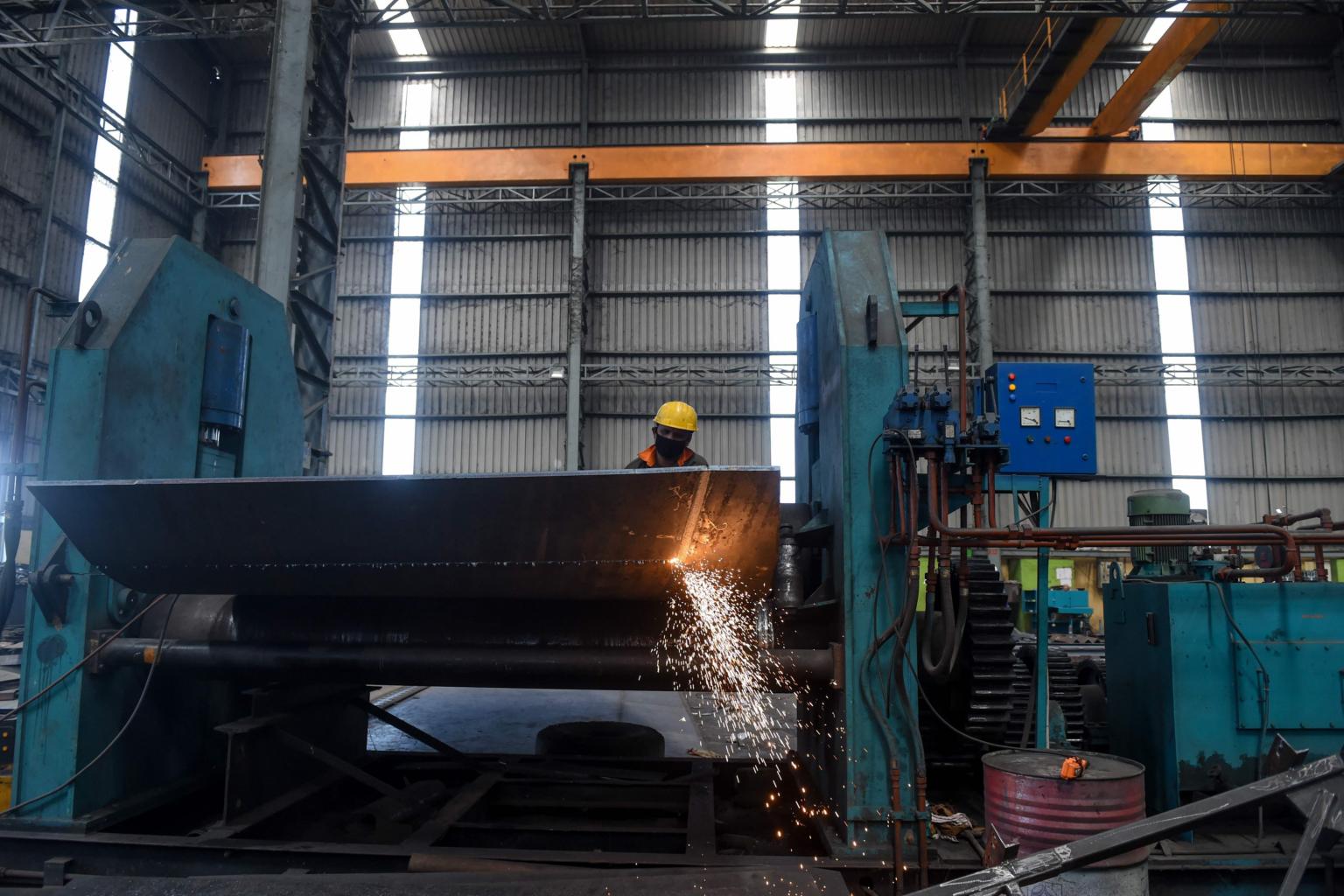COVID-19 SPECIAL
Coronavirus: Indian states dilute labour laws in hopes of economic revival
Sign up now: Get insights on Asia's fast-moving developments

Gujarat has suspended all labour laws applicable to new factories for 1200 days.
PHOTO: AFP
Follow topic:
BANGALORE - Indian state governments are transforming or altogether doing away with labour policies, in an effort to reignite their economies which have been devastated by lockdown measures imposed to control the Covid-19 pandemic.
The most far-reaching changes have come in the big BJP-ruled states of Madhya Pradesh, Uttar Pradesh and Gujarat.
The Uttar Pradesh government has passed a temporary executive order suspending for three years laws that govern minimum wages, workplace safety, toilet and lunch breaks, work hours, overtime pay, and employment benefits.
The western state of Gujarat has suspended all labour laws applicable to new factories for 1200 days, except those related to minimum wages and industrial safety. The factories will also face less government scrutiny.
The government in the central Indian state of Madhya Pradesh passed executive orders that will free factories from having to follow most provisions of the federal Factories Act for three months.
The Act deals with employee safety, health and well-being. New firms will not be covered by most provisions of the industrial disputes law for 1000 days or nearly three years.
The northern states of Himachal Pradesh, Haryana and Punjab have increased daily working hours in factories from 8 to 12.
Southern state Andhra Pradesh and western state Rajasthan have said companies with more than 300 employees can now sack workers without government approval, which was previously required of companies with over 100 workers.
These changes come after massive job losses attributed to India's lockdown and measures imposed against Covid-19. Mumbai-based think tank Centre for Monitoring Indian Economy records that unemployment has shot up from 8.7 per cent in March to almost 28 per cent this week, the highest ever recorded. The worst affected are daily wage earners and those with no job security.
State governments say altered labour rules will increase business productivity and create new investment opportunities. They also hope these changes will attract businesses looking to relocate from China.
Many businesses and political parties have long demanded labour law reforms to rectify the country's confusing patchwork of regulations that they claim protects neither workers nor their employers. About 90 per cent of Indian workers are employed informally and have almost no legal protection. Some analysts say that India's paternalistic labour laws are to blame.
Those who support changes in labour laws say they will help companies become nimbler and give workers more choices.
Mr Nitin Pai, director of the Bangalore-based think tank Takshashila Institute, cited evidence of manufacturing growth models in Europe and America to say: "If a more relaxed labour environment leads to greater investment, it will cause more people to be employed and also increase the numbers in formal employment."
But many economists and trade unions say the changes will leave workers, already battered by the pandemic and lacking a social safety net, at the mercy of their employers.
For instance, suspension of the Factories Act means that companies in these states are no longer required to provide drinking water, restrooms, canteens, creches and proper ventilation and lighting to workers.
Labour rights researcher Shankar Gopalakrishnan said, "There is little evidence that labour laws are the main reason for unemployment or lack of investment in industry. Without legal means to protect rights, there will be a sharp rise in conflict and exploitation in the long run," he added.
On May 13, the International Labour Organization (ILO) responded to the sweeping changes in labour laws, asking authorities to ensure that relaxations adhere to global standards and are done after proper consultation.
Labour unions, including the BJP-linked Bharatiya Mazdoor Sangh, vehemently oppose the changes. Mr CK Saji Narayanan, the head of the Sangh, described the changes as a "new pandemic, perhaps more dangerous than the coronavirus".
Unions are already challenging the changes in courts across the country.
Mr Rajiv Bajaj, managing director of Bajaj Auto, one of India's oldest automobile manufacturers, called the changes "ridiculous".
"I don't think anyone can build a world class business with such third class policies," he told Mojo, an Indian web channel.
Last year, India's central government said it would consolidate over 44 central labour laws into four codes on wages, social security, safety and industrial relations. A code on wages has already been passed by Parliament.
In the wake of the Covid-19 pandemic, more state governments are likely to try to speed up labour policy changes, but may need federal approval.

